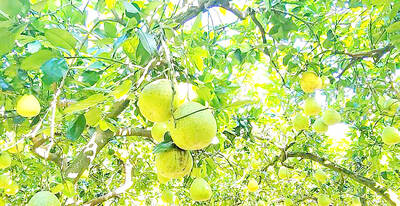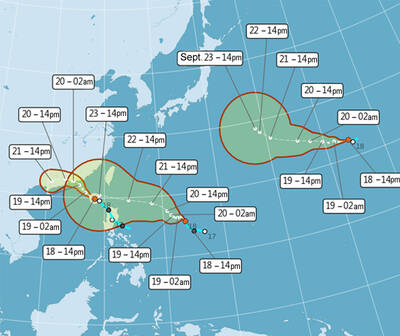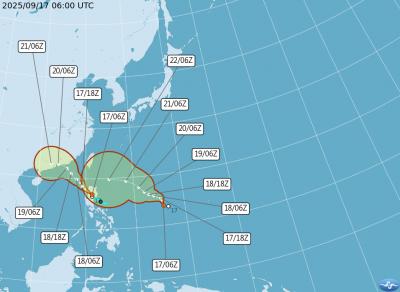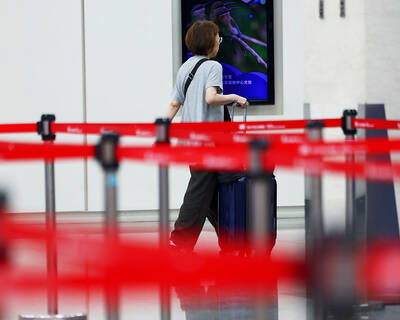Wang Xiulian, a Chinese woman who married a man from Taiwan and has been living here for eight years, hates going to the market to buy vegetables.
Some vegetable sellers, knowing she is from China, often ask her: “Do you want to buy "dalumei"?”
Dalumei means “mainland sister,” a pejorative term for Chinese brides, but also a moniker for a kind of lettuce.
“They do that on purpose. So I turn around and walk to another vegetable stand,” Wang said.
Taiwanese began to refer to the lettuce as "dalumei" more than a decade ago, when Chinese brides began arriving in Taiwan.
Marriages between Taiwanese men and Chinese or Southeast Asian women have increased in the past few years. A majority of the men are middle-aged or older — mostly farmers and workers who could not find wives in Taiwan. Dating agencies take these men to China to pair them with young Chinese women who dream of better lives in Taiwan.
This has given rise to exploitation and crime, with some agencies arranging fake marriages to lure Chinese women to Taiwan and exploit them as prostitutes or illegal factory workers.
Many of the Chinese brides experienced disillusionment when they arrived in Taiwan.
“My husband's family looks down on me, neighbors look down on me, everyone looks down on me. I envy the women in my village who went to work in Singapore or Britain. They make more money and send back money to build large houses,” Wang said.
Mainland Affairs Council (MAC) figures show that there are about 170,000 Chinese brides in Taiwan, while an unofficial estimate puts the figure at 270,000.
Most of them got married with the help of agencies who arranged for Taiwanese to visit China for speed dating.
In Wang's hometown in Fujian Province, some agencies charge local women 30,000 yuan (US$4,400) to arrange the marriage, while others ask Taiwanese men to pay a dowry of 10,000 for a Chinese bride.
If both parties like each other, they go to a photographer for a wedding photo and apply for a marriage certificate. Then the man returns home to apply for an entry permit for his wife so that she can live in Taiwan.
Landing at Taiwan's airports, Chinese brides have to attend an interview to prove they are not taking part in a fraudulent wedding. Some Chinese wives have been reduced to tears because the questions were humiliating, reports said.
Even after receiving a Taiwanese identity card, which takes six years, and obtaining citizenship, the women have difficulty finding work because Taiwan does not recognize Chinese college degrees or job licenses.
In recent years, Chinese brides have held several rallies in Taipei to demand the right to live and work in Taiwan.
Their top demands are reducing the wait for a Taiwanese ID to four years — the same as spouses from other countries — and recognition of Chinese degrees and work licenses.
But the MAC has dismissed allegations of discrimination.
“When a foreign spouse applies for a Taiwan ID card, the spouse must renounce his or her citizenship, pass the naturalization exam and stay in Taiwan for a number of days each year while waiting for the ID card. We have no such requirement for mainland spouses,” Hu Hsin-ju of the MAC's legal affairs section said.
As for degrees and licenses, Chang Li-ching of the culture and education section said the MAC was seeking to amend the law to recognize Chinese college degrees.
At present, Taiwan recognizes only China's primary, middle and high school degrees.
“Once Chinese college degrees are recognized, the spouses can join licensure exams in various fields, the same way Taiwanese do,” she said.
Chen Wu of the Taiwan New Inhabitants Association believes that Taiwanese looking down on Chinese brides arises from Taiwanese propaganda that China is poor and backward.
“But I must admit that many mainland brides have not had a good education and cannot even write a proper resume,” he said. “I tell them that in order to be respected, they have to raise their own level first.”

NEW AGREEMENT: Malaysia approved imports last year after nearly two years of negotiations and inspections to meet quarantine requirements, officials said Up to 3.6 tonnes of pomeloes from Taiwan cleared Malaysian customs on Friday, in the first shipment of Taiwanese pomeloes to Malaysia. Taiwan-grown pomeloes are popular in domestic and overseas markets for their tender and juicy taste, the Ministry of Agriculture’s Animal and Plant Health Inspection Agency said. The fruit is already exported to Japan, Canada, Hong Kong, Singapore and the Philippines, it added. The agency began applying for access to the Malaysian market in 2023, compiling data on climate suitability, pests and diseases, and post-harvest handling, while also engaging in nearly two years of negotiations with Malaysian authorities and submitting supplementary

PEAK MONTHS: Data showed that on average 25 to 27 typhoons formed in the Pacific and South China seas annually, with about four forming per month in July and October One of three tropical depressions in the Pacific strengthened into a typhoon yesterday afternoon, while two others are expected to become typhoons by today, Central Weather Administration (CWA) forecaster Lee Ming-hsiang (李名翔) said yesterday. The outer circulation of Tropical Depression No. 20, now Typhoon Mitag, has brought light rain to Hualien, Taitung and areas in the south, Lee said, adding that as of 2pm yesterday, Mitag was moving west-northwest at 16kph, but is not expected to directly affect Taiwan. It was possible that Tropical Depression No. 21 would become a typhoon as soon as last night, he said. It was moving in a

One of two tropical depressions that formed offshore this morning could turn into a moderate typhoon by the weekend, the Central Weather Administration (CWA) said today. Tropical Depression No. 21 formed at 8am about 1,850km off the southeast coast, CWA forecaster Lee Meng-hsuan (李孟軒) said. It is expected to move in a northwesterly direction as it continues building momentum, possibly intensifying into Typhoon Mitag this weekend, she added. The radius of the storm is expected to reach almost 200km, she said. It is expected to approach southeast of Taiwan on Monday and pass through the Bashi Channel between Tuesday and Wednesday,

About nine Taiwanese are “disappeared,” detained, or otherwise deprived of freedom of movement in China each month, the Mainland Affairs Council (MAC) said yesterday. Between Jan. 1 last year and Aug. 31 this year, 188 Taiwanese travelers went missing, were detained and interrogated, or had their personal freedom restricted, with some questioned in airports or hotel lobbies, the council said. In a statement ahead of the Mid-Autumn Festival, the council urged people visiting China for any reason to be highly vigilant and aware of the risks. Of the reported cases, 50 people were “disappeared” after entering China, 19 were detained and 119 had